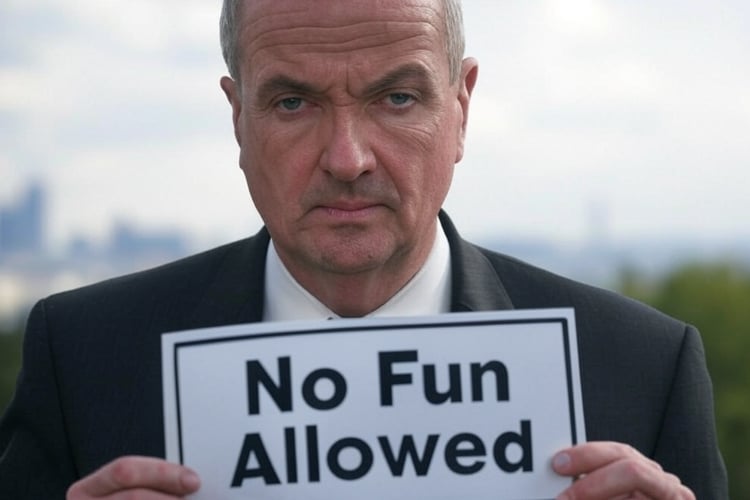TRENTON, NJ – Vacations to the Jersey Shore are about to get more expensive under New Jersey Governor Phil Murphy’s latest tax, being dubbed the ‘fun tax’ by the opposition.
Governor Murphy’s latest budget proposal for Fiscal Year 2026, unveiled on February 25, has ignited a firestorm of controversy. The proposal includes a series of new taxes targeting recreational activities dubbed the “entertainment fun tax” by critics.
The plan, part of a record-breaking $58.1 billion state budget, aims to generate an additional $1.2 billion in revenue by expanding the state’s sales tax to cover a wide array of leisure pursuits, drawing sharp criticism from residents, lawmakers, and business owners who see it as an attack on middle-class families and small businesses.
The so-called “fun tax” would impose a 7% sales tax on activities previously exempt, including bowling, go-kart racing, laser tag, batting cages, bungee jumping, pool halls, and even Topgolf outings.

According to budget documents, the state anticipates collecting $277 million by taxing these and other services, such as interior design, horse training, vehicle trade-ins, and certain event tickets.
The proposal comes as part of Murphy’s broader strategy to address fiscal challenges without broad-based tax hikes, like increases to the income or general sales tax, while maintaining a $6.3 billion surplus.
Governor Murphy, in his ninth and final budget address, framed the plan as a necessary step to ensure economic security and opportunity for all New Jerseyans.
Murphy blames the eggs, but ignores his ‘fun tax’ during State of the State speech.

“Whether it be the skyrocketing cost of eggs or a housing market that is hotter than ever, our state’s working- and middle-class families are worried,” Murphy said, emphasizing that the budget prioritizes affordability through property tax relief and education funding. However, he made no direct mention of the recreational taxes during his speech, leaving the details to be unearthed in the 400-page budget proposal.
Critics quickly seized on the omission. Assembly Republican Budget Officer Nancy Muñoz remarked, “I’ve never heard a budget address that didn’t even mention the budget before,” calling the plan “anything but affordable.”
On X, posts labeled it a “tax on fun,” with users like @Sober297 lamenting, “Phil Murphy Now Wants to Tax Fun in New Jersey, Targeting Middle Class Families,” while @DawnFantasia_NJ, a state assemblywoman, listed the taxable activities in disbelief: “Hope you’re sitting down.”
The backlash has been particularly fierce from families and small business owners.
“Imagine planning a family outing to the bowling alley or a thrilling afternoon of laser tag with friends, only to find out New Jersey’s government wants to slap a tax on your fun,” wrote Shore News Network, a sentiment echoed across social media.
Bowling alley operators and go-kart track owners, already reeling from pandemic-era losses, fear the added cost could deter customers, threatening their livelihoods.
The entertainment tax is just one piece of Murphy’s revenue-raising puzzle. The budget also proposes hiking taxes on online gambling and sports betting from 13-15% to 25% ($402.4 million), increasing the Realty Transfer Fee on luxury homes ($317 million), and taxing guns and ammunition ($8 million), among other measures. While the governor touts a record $4.3 billion in property tax relief—including the ANCHOR and StayNJ programs—opponents argue the new fees undermine those gains.
Republicans, though outnumbered in the Democrat-controlled Legislature, have vowed to fight the proposal. Senate Budget Officer Declan O’Scanlon, brandishing a tube of lipstick given to him by Murphy, quipped that the budget required “slathering gallons of lipstick on a pig.”
GOP leaders have threatened legal action over what they call “pork” spending, while business groups like the New Jersey Business and Industry Association demand clarity on how the revenue will be used, especially after last year’s Corporate Transit Fee was redirected to pad the surplus.

